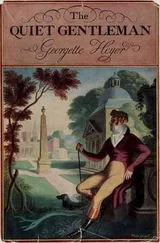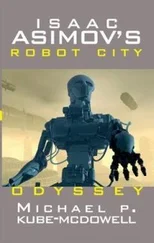“Oh, I can’t fuck you,” he said, circling her, his tone sarcastic, his words taunting. “I’m sure I’m not good enough for one of the Chosen.”
Scrabbling in the dirt, she twisted as he moved to keep facing him. It was then that she saw what he held in his right hand—a stout stick as long as his forearm and as thick as his thumb. Fear cleared the fog from her mind.
“We can do it right here, Evan,” she cooed. Come on, come on in, come close enough for me to reach you . She tugged awkwardly at her skirts. “It’s all right. Let’s do it. I can make you feel wonderful.”
He laughed. “You don’t know yet who I am, do you? I didn’t bring you out here to fuck you. I brought you out here to kill you.”
The impossible words glanced off her, unprocessed and undigested. She stared at him dumbly.
“You think you get everything you want, don’t you?” he went on, his voice now calm, his tone amused. “Blessed daughter of the Earth, touched by the gods. Little queen of time and space. What’s so fucking special about you?”
He moved so suddenly she could barely see him, one quick step toward her, the stick raised high. She flung up an arm as the stick came down and there was a horrible sound, crack-crack , like two saplings snapping, splintering, except the sound was wet and muffled and the saplings the twin bones of her forearm.
Malena cried out in shock, wondered for an instant why she felt no pain, and then screamed as the distorted arm fell limply into her lap and a hundred million nerve endings awakened from their shock. A warm wetness spread over her thigh, and she saw with horror that her skin had been laid open by the blow, as by a razor edge. Moaning, she looked up at him wonderingly.
“You don’t look so special now,” Evan said, hovering out of reach. “You look just as scared as any poor slob. I saw a guy hang himself by accident once. He had the same look on his face—like he was surprised to find out he could die. Funny, it was sex that got him in trouble, too.”
“Please—”
“Please what? Please let you go? Please don’t kill you? Are you hoping it bothers me to see you bleeding? Dream on, Malena dear. I want it to hurt. This is the end of your life, Chosen One. I want it to last forever.”
With her good hand, Malena tried fruitlessly to staunch the flowing blood. “Oh, God—”
“Save it,” he said coldly. “Don’t even try. You can’t talk me out of it. This isn’t a lark. I didn’t wake up this morning and say, ‘Gee, what a great day to recycle some poor trot.’ I’ve been ready for weeks. You’re a gift, a pure sugar treat for a good boy.”
“You’re crazy!” she shrieked. “You’re fucking crazy!”
“Thank you! I’d have been disappointed if you hadn’t said that at least once.” He leaned in closer to her. “But you’re wrong. I’m not crazy. I just hate your guts.”
His arm went up, the stick came down, and the razors sliced deep into her good shoulder. She did not have the breath to scream. Blood ran, spurted, streaking dusty skin. She could not lift either arm.
“No—”
“You still don’t know who I am, do you?” he hissed. “I’m the leveler. I’m the collector of debts. I’m a soldier of the Earth. I’m the hands of Jeremiah, and you’re the Chosen. I chose you. I chose you to die.”
He whipped the stick in a blinding-fast sideways stroke, and she screamed as the side of her head exploded with thunder and fire. She spun away, collapsing into a quivering huddle, the web of light in her eyes fast fading.
An immeasurable moment later, the murderous dragon’s tail came down once more, across the back of her neck, shattering the bones of her spine and the delicate tissues within. She jerked soundlessly. But it was only reflex, for whatever was life and consciousness, whatever was Malena Graham, was gone. All that remained was the slow death, the quiet transformation from delicate machine to dust.
CHAPTER 21
—GAA—
“…the greater good …”
The murder of Malena Graham was news that would not wait for morning, and so it was a short night for many in the Project family.
Hiroko Sasaki, on Takara to receive a deficiency report from the supervisory circle and tour the nearly completed Memphis , went directly from her suite to the transportation office to arrange a shuttle home.
Still wearing his striped pajamas, Edgar Donovan settled in his office node and began calling contacts in the media, even as he monitored the first fragmentary reports on Newstime and the black traffic on the private corporate net.
A shattered Thomas Tidwell, receiving special handling from Houston corpsec, shed his Thomas Grimes persona and fled to the quiet security of Halfwhistle by means of a corporate screamer.
Sleepy-eyed morale counselors and group dynamicists, huddled in a Building H conference room, debated whether to hold the pioneers over until the shock had been absorbed or to empty Noonerville early.
An unlucky senior facilitator headed for Virginia with an insurance check and the vain hope of shaping the Graham family’s public posture.
And Mikhail Dryke, heart-weary and discouraged, came back to Houston from Prainha, feeling as though it were a pilgrimage of futility. Too late, again too late. In the two hours and forty minutes between the flash alert and Dryke’s Celestron touching down on the complex’s runway, both the primary and secondary reasons for that journey had evaporated.
The first, of locating Graham’s killer, disappeared when Rangers from the Beaumont post forced down a Ford Firefly a few kilometers short of the Louisiana border, arresting one Evan Eric Silverman. The second, of determining whether Silverman had known Graham’s status, vanished when he confessed—no, boasted—in his first interview that he had killed a colonist, calling Malena a “traitor” and himself a “martyr.”
On hearing the latter, Dryke’s fury was matched only by his feeling of impotence. It had been obvious for months that the pioneers were at risk from the more radical Homeworlders—if not, then why were their identities and movements so conscientiously concealed? Dryke had urged repeatedly that the training centers be made closed campuses. But he had been overruled by assorted management types, Sasaki included, for reasons which had nothing to do with security.
Better to make it unnecessary for them to leave than to forbid them, he was told. Better that they see the center as a refuge, not a prison—their fellows as friends, not inmates. Better that they choose to turn their back on a world that they’ve decided for themselves is unfriendly. Better for morale. Better for solidarity. Better for everyone.
Except Malena Graham.
By midmorning, when Dryke reached the Beaumont post, it was already clear that so far as Allied Transcon was concerned, the murder of Malena Graham was a public relations disaster.
Here was the grieving family standing in front of their home, a sobbing Mother Caroline declaring, “Our girl was stolen from us. We never wanted her to go,” and Father Jack bitterly denouncing Allied Transcon for negligence—as if Graham had been some sort of teenage overnight camper.
Here were the world media, suddenly interested in the “tensions” between Allied and the Houston community, broadcasting inflammatory interviews with Diaspora opponents, complete with footage of the compound fences, patrol boats, and watch towers. And here was clean-faced clear-spoken Evan Silverman, being interviewed from his cell by a grimly earnest Julian Minor. Dryke sat in his vehicle in the post parking lot and watched on the skylink for as long as he could stand.
“What do you mean, don’t cry for Malena Graham?” Minor asked. “This is a young woman, her life in front of her, a courageous physically challenged twenty-year-old. And you dragged her off to the middle of nowhere in the middle of the night and beat her to death.”
Читать дальше

![Nick Cracknell - The Quiet Apocalypse [= Island Zero]](/books/28041/nick-cracknell-the-quiet-apocalypse-island-zero-thumb.webp)










